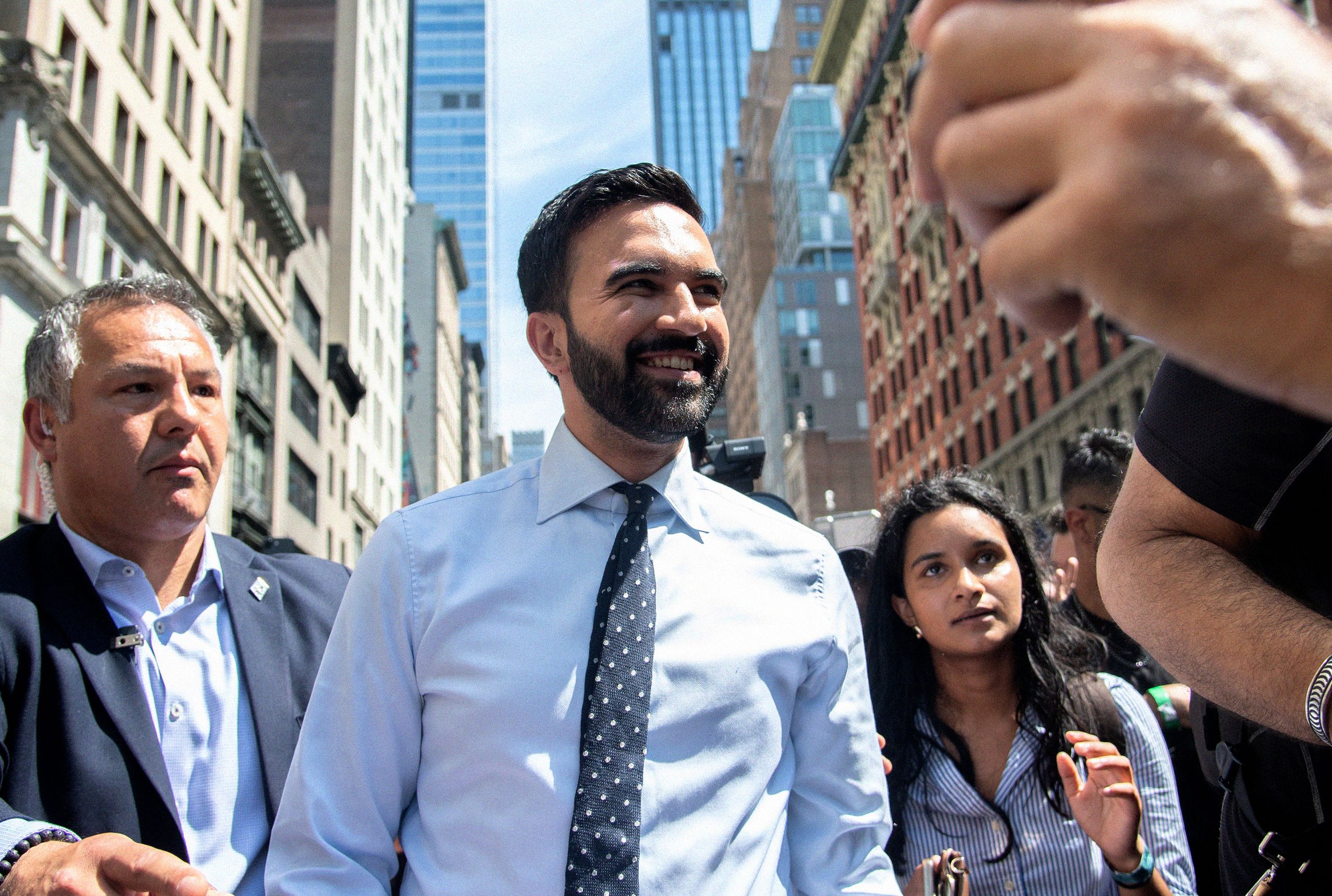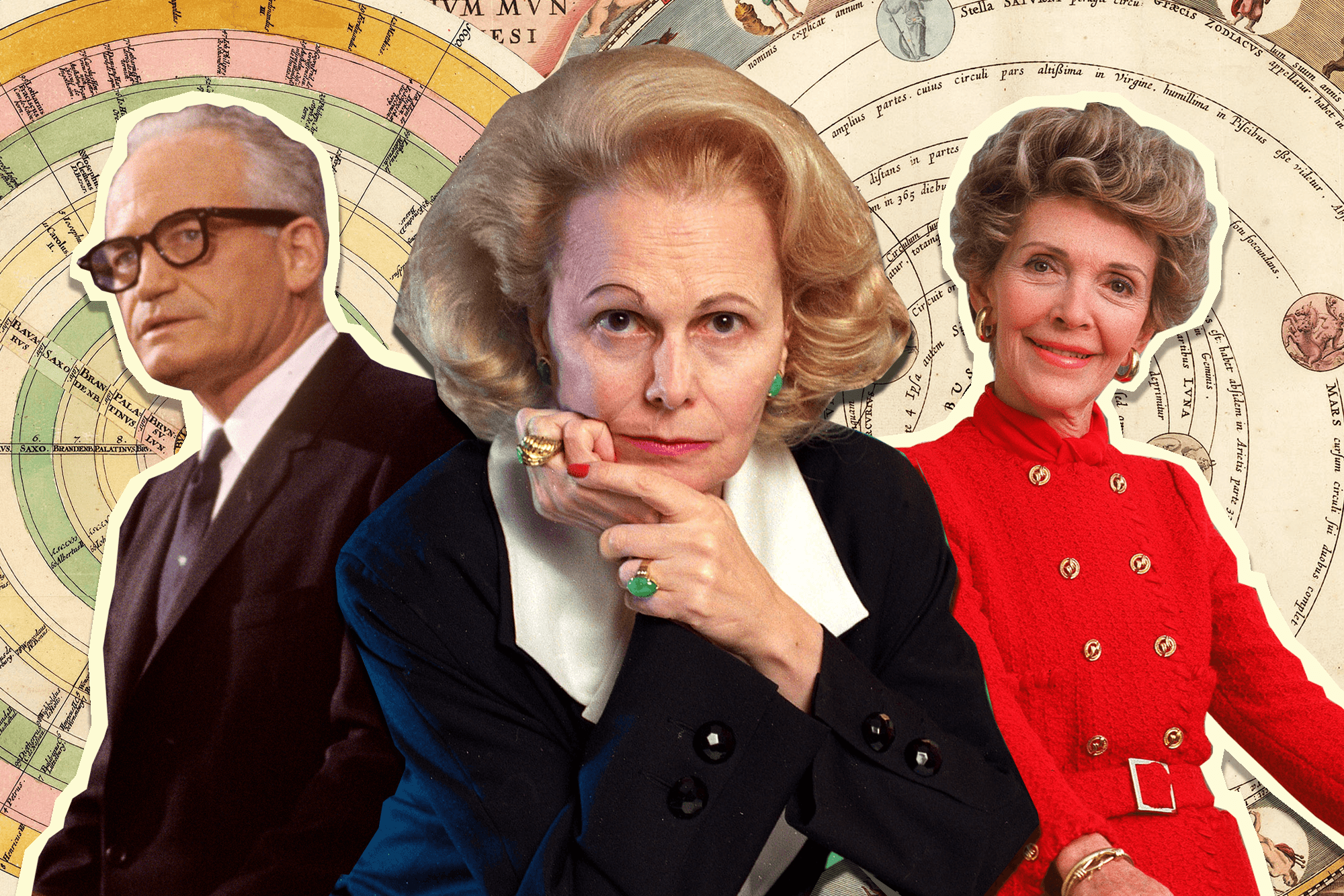Can Zohran Mamdani Build Bridges with New York's Wealthy Elite? | Vanity Fair

John Catsimatidis is definitely not panicking at the prospect of Zohran Mamdani becoming the democratic socialist mayor of New York City. No way. Catsimatidis owns the venerable Gristedes grocery chain, and his threat to close or sell the stores if Mamdani follows through on a proposal to open five low-cost supermarkets in the city? Totally rational. “If he’s giving away everything in those stores, how can I fight it?” Catsimatidis tells me. “I mean, this guy knows nothing about nothing! He’s advocating socialism, and it doesn’t work! Fidel Castro advocated socialism in Cuba. The people were starving to death!”
Catsimatidis has always been an eccentric outlier in the city’s business and political circles, but he has plenty of company for his freakout. Much of New York’s ruling class paid little attention to the Democratic primary, confident that the business-friendly Andrew Cuomo would roll to victory. Mamdani’s surprising 12-point trouncing of the former governor last month set off a backlash. Hedge fund billionaire Bill Ackman has attacked Mamdani’s views on Israel. The democratic socialist’s ideas for reforming the NYPD, freezing some rents, providing free bus service, and raising taxes on millionaires and corporations have also drawn heat from the wealthy.
“These are great talking points for people who don’t know history, for the moron millennials who voted for him,” says Greg Kraut, a real estate developer specializing in downtown office buildings. “I’m 49. People my generation and above remember David Dinkins, they remember Ed Koch, they remember New York City burning. I must get 10 calls a day: ‘How are we going to stop this?’”
A more fundamental question is whether all the angst coalesces into substantial general election opposition. “I think it’s mostly tantrum-y,” a top strategist who regularly works with big New York donors says. “In 2013 there was all this talk that the real estate community was going to come together to stop Bill de Blasio. It didn’t happen. And if you’re a big donor these days, you’re not just relying on public polls or what some super PAC might tell you. You’re doing your own polling [to determine whether to back a candidate].”
You are also probably hearing from cooler heads, including Kathryn Wylde, the influential president and CEO of the Partnership for New York City, a powerful business group. Wylde has been tamping down the hysteria by reminding the city’s titans that many of Mamdani’s proposed policies would need the approval of state government, and that Governor Kathy Hochul, who is up for reelection in 2026, has already shot down the idea of raising taxes.
Mamdani’s political skills are also proving to be a source of cautious optimism. He has reached out to former mayor Michael Bloomberg, who poured $8.3 million into a Cuomo-supporting super PAC during the primary. (Spokespeople for Mamdani and Bloomberg did not comment when asked if Bloomberg had responded.)
“[Mamdani] called me [shortly after the primary] and said, ‘I want to thank you because you were willing to meet with me when I was polling at 1%,’” Wylde says. “He’s calling up everybody I ask him to call, saying he wants to work together, giving them his cell number. Jamie Dimon famously said that during eight years as mayor, de Blasio never called him. He’s doing a lot more than Bill ever did.”
One test will come on July 15, when Mamdani is scheduled to sit down with chief executives at a meeting organized by Wylde. No doubt Mamdani will be asked about his recent comment on NBC’s Meet the Press: “I don’t think that we should have billionaires.” Probably more important, though, will be how Mamdani handles questions about public safety. “What he does on Jessica Tisch will matter a great deal,” says a political consultant who is deeply familiar with New York’s 1 percent. Tisch, the current NYPD commissioner, isn’t simply a highly regarded manager who has been reducing crime—she’s a scion of the Tisch family that founded the Loews Corporation, endowed NYU’s Tisch School of the Arts, and co-owns the NFL’s New York Giants. “If he wants Jessie to stay, if he can get her to stay, that’s the first signal,” the consultant says. “There’s going to be total panic if she leaves. Because who better to represent the fucking plutocracy than a Tisch?”
A New York Times story published last week was an indication that Mamdani’s life will be under intense scrutiny until the general election. It used hacked data provide by an anti-affirmative-action academic to report that Mamdani—who is of Indian descent and was born in Uganda—had identified himself as “Asian” and “Black or African American” on an (unsuccessful) 2009 application to Columbia University. Mamdani has said he was trying to represent the complexity of his background.
However, unless there is something more substantial and truly disqualifying in his background, or Mamdani makes some egregious error, defeating him in November will require not just cash but a credible opposition candidate. Republicans are outnumbered six to one in the city, and the party’s nominee is Guardian Angels founder Curtis Sliwa. Cuomo has a ballot line but hasn’t said whether he’ll be mounting a full-fledged campaign. Lawyer Jim Walden is running as an independent—as is Eric Adams, the incumbent. Ackman has said he’s supporting Adams, who last weekend was the beneficiary of a Hamptons fundraiser cohosted by Catsimatidis. But Adams is widely and deeply unpopular with voters: A Manhattan Institute poll in June put the mayor’s job disapproval rating at a staggering 70%. “At this point, Eric should just be happy to not be in jail,” says Mark Gorton, a tech multimillionaire and safe-streets activist who donated $250,000 to Cuomo’s super PAC for the primary.
Gorton’s largesse—along with much more from DoorDash, the real estate sector, and Bloomberg—proved a whole lot less politically valuable than Mamdani’s volunteer army. “The Cuomo forces spent $25 million in about three and a half weeks. There’s no evidence that money mattered at all,” the consultant says, sounding resigned. “The idea that spending $50 million or $75 million would make a difference in the general? I wouldn’t advise it.”
Karen Read’s Defense Attorney Talks
The Secret Lives of Brando, Pacino, Dolly Parton, and More
How Donald Trump’s Governing Style Mimics the Mob
Everyone Wants a Piece of Pedro Pascal
Dallas Cowboys Cheerleader Chandi Dayle on Hitting “Rock Bottom”
How Lara Trump Could Take North Carolina
Meghan Markle Is in a Jam Jam
Debbie Harry Gets Candid
The 11 Best Movies of 2025, So Far
From the Archive: The Idaho Murders




